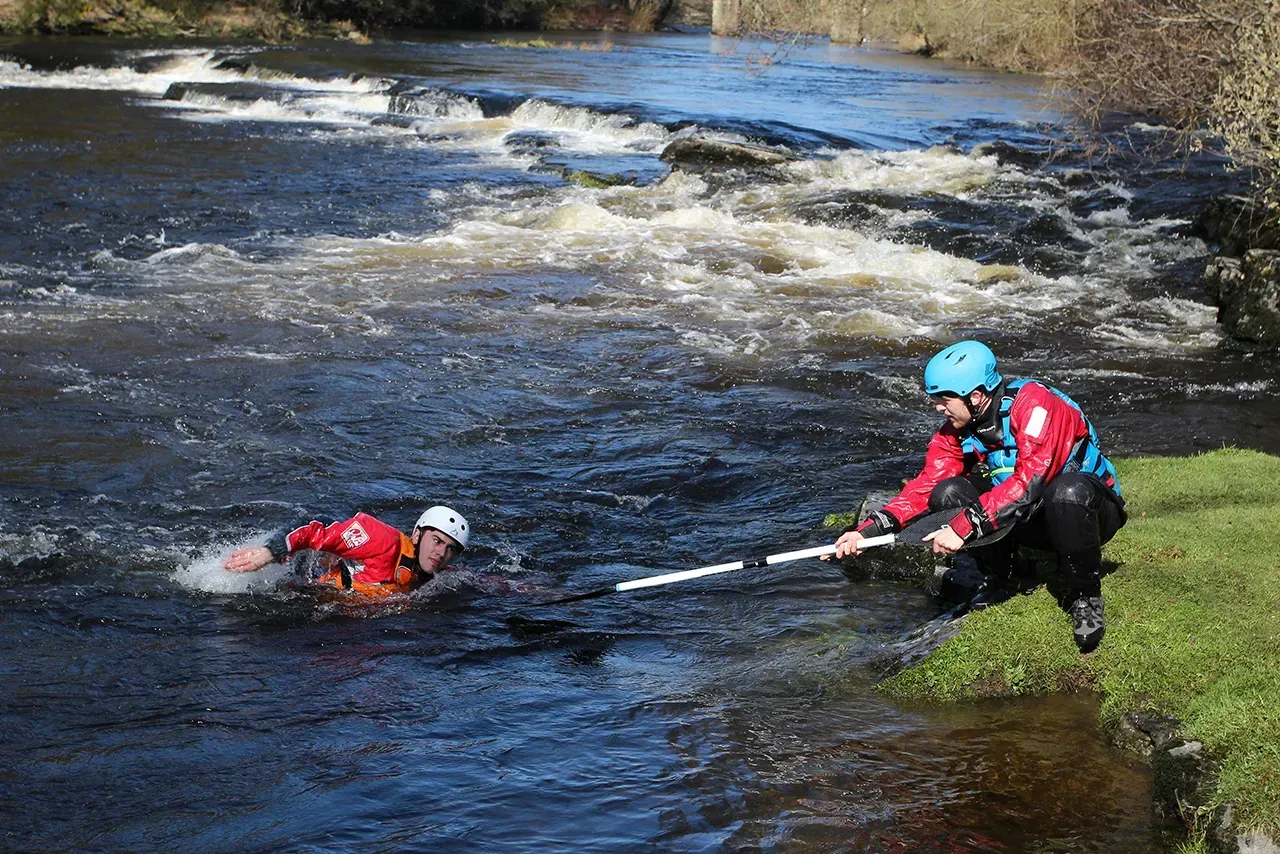
What are waterborne diseases?
Waterborne diseases are illnesses which can be picked up by humans, in the form of viruses or infections for example. For the purposes of paddlesport, they’re usually picked up while you’re in the water – through cuts or through ingestion (accidentally drinking the water!) or on the bank, for example when you’re touching the sides of the river to get out.
Which waterborne diseases should I know about?
There are many waterborne diseases, but the most common ones that paddlers should be aware of are:
Weil’s disease (LEPTOSPIROSIS)
You can catch weil’s disease anywhere where you’re likely to come into contact with infected animal urine, but most likely on the waters edge as you get in and out of your boat/SUP. Leptospirosis is an infection caught through contact with infected animal urine (mainly from rodents, cattle or pigs). The causal organism can enter the body via cuts or abrasions of the skin or the lining of the nose, mouth, throat or eyes.
The symptoms are very similar to flu, and can occur anytime up to 3 weeks after paddling.
If you develop symptoms, make sure your doctor is aware of your symptoms and that you have been paddling recently.
Blue green algae (CYANOBACTERIA)
Most likely to be caught in slow moving or still water, like lakes, canals or very slow flowing rivers. Blue green algae usually looks a blue-green colour, hence the name! Though it can come in a range of different colours. You’ll usually find it after extensive periods of warm, settled weather – so look out for it in mid to late summer.
Though blue green algae can be fatal to animals, it’s serious but not fatal in humans. Look out for eye irritation, dermatitis and joint/muscle pain or, more seriously, gastro-enteritis, pneumonia, liver damage and certain neurological conditions.
Contact your doctor right away if you suspect you’ve been paddling in infected water and have developed any symptoms. Look out for any blue green algae signs before paddling, as many places are marked out as being infected.
Gastro-Intestinal Illness
You can catch this pretty much anywhere you paddle on inland waterways. This disease is particularly prevalent after heavy rainfall, when sewage is likely to be discharged into rivers and the sea. So be careful if you’re paddling in flood waters or near flooded areas.
Like with many waterborne diseases, the symptoms aren’t pleasant! Look out for watery diarrhea, abdominal cramps, nausea or vomiting, and sometimes fever.
If you feel the symptoms are worsening, or you have a weakened immune system or are at risk of complications, contact your doctor and explain your situation. Otherwise, most people make a full recovery from this one with plenty of clean water to flush out the system and rehydrate.
Hepatitis A
You’re most likely to catch this disease when paddling in flood water or after heavy rainfall, as it’s usually discharged into rivers with raw sewage… nice!
Symptoms can be abrupt and include fever, jaundice and abdominal discomfort.
Contact your doctor and explain your situation if you get any symptoms.
So, how can I keep myself and others safe when paddling?
- Never drink water from a river or lake
- If you swallow contaminated water, refer to your doctor with full details of the incident
- Only drink from your own water bottle
- Always shower after contact with the water
- Wash hands thoroughly and shower if necessary before eating or drinking
- Cover cuts and abrasions (including blisters) with waterproof dressings
- Wear suitable footwear, particularly when launching or landing, and particularly if it is necessary to wade into the water, to prevent direct contact with the water and protect the feet from cuts and abrasions.
- Avoid immersion in, or contact with, water, particularly if there is an algal scum or bloom.
- Do not splash river or lake water onto your face or body in order to cool down (take a bottle of tap water with you for this).
- Use clean water to wash down all equipment after outings to remove any potential contamination
- Wash, and thoroughly dry, any contaminated clothing before re-use
- Maintain your immunisation regime against Tetanus, also Hepatitis A, Hepatitis B, Polio, Typhoid and Dysentery when training abroad



